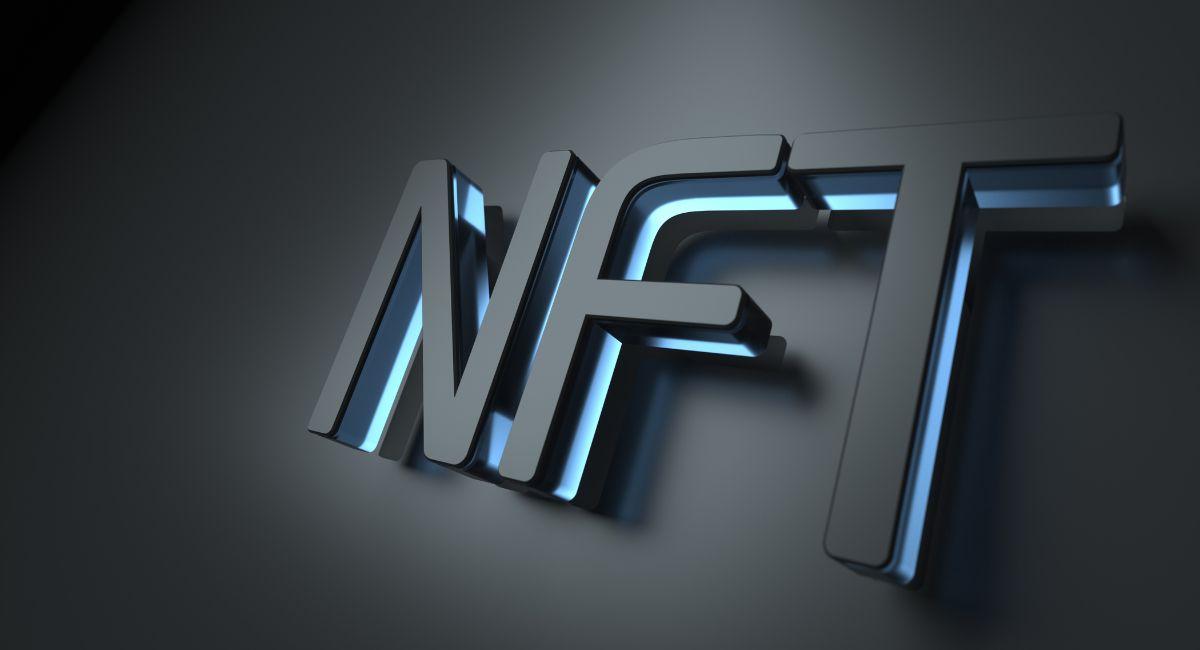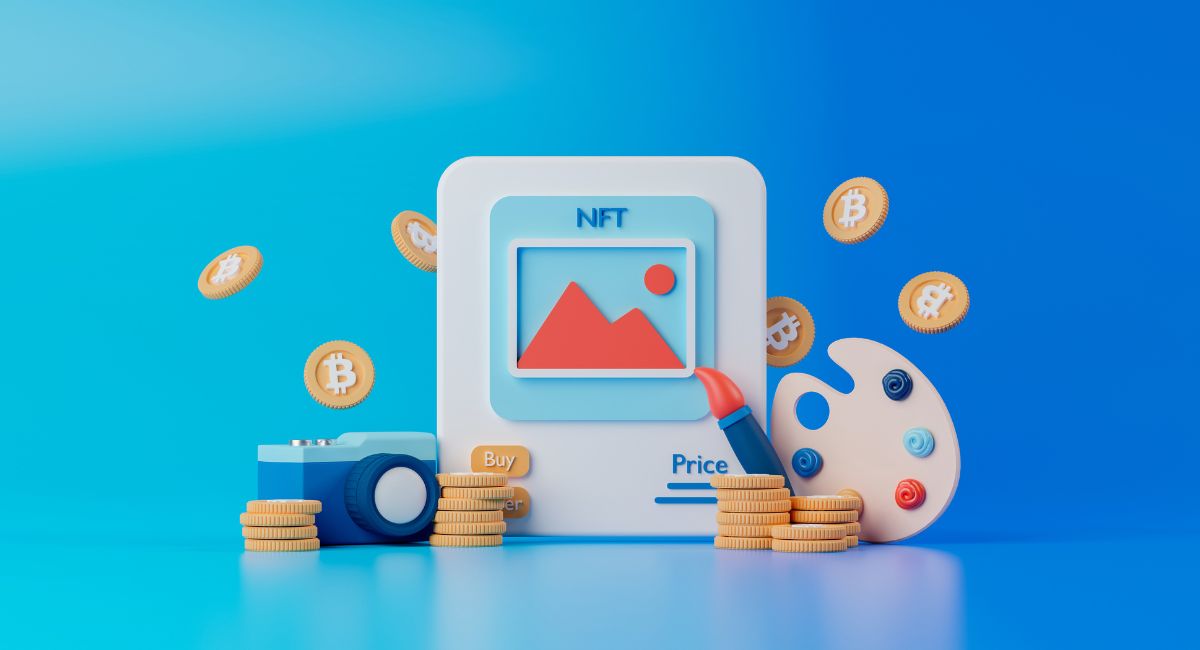Top 10 Amazing Upcoming NFT-Based Product Ideas That Will Change The NFT Ecosystem

The NFT (Non-Fungible Token) ecosystem refers to the interconnected network of platforms, technologies, communities, and marketplaces that revolve around the creation, issuance, trading, and consumption of NFTs. This ecosystem has grown rapidly and encompasses various elements like NFT-Based Products that contribute to the development and sustainability of the market.
Blockchain platforms, such as Ethereum, serve as the foundational layer, enabling the creation and management through smart contracts adhering to specific standards like ERC-721 and ERC-1155. NFT marketplaces, like OpenSea and Rarible, provide the infrastructure for users to buy, sell, and trade these unique tokens, fostering interaction between creators and collectors. Digital wallets, such as MetaMask, act as secure repositories, allowing users to manage and transfer their assets seamlessly. Creators, ranging from artists to game developers, produce digital or physical content tokenized, while collectors and investors contribute to the ecosystem’s vitality. Integration with decentralized finance (DeFi) platforms, community engagement on social platforms, and innovative projects exploring novel use cases contribute to the ever-evolving and diverse nature of the ecosystem. Legal considerations in NFT-Based Product, gaming integrations, and emerging technologies further shape the ecosystem, collectively redefining ownership, value, and interaction with digital and real-world assets.
Components of the NFT ecosystem
- Blockchain Platforms: The underlying technology for most is blockchain. Ethereum is the dominant blockchain, but other platforms like Binance Smart Chain, Flow, and Polygon have gained popularity. Each platform may have its own standards (e.g., ERC-721, ERC-1155).
- Smart Contracts: Smart contracts define the rules and functionalities. They handle the creation, transfer, and ownership. Developers create these contracts on blockchain platforms to enable minting, trading, and management.
- NFT Marketplaces: These online platforms facilitate buying, selling, and trading. Popular marketplaces include OpenSea, Rarible, and Mintable. These platforms serve as a crucial bridge between creators and collectors, offering a user-friendly environment for transactions.
- NFT Wallets: Digital wallets designed to store and manage. These wallets support the blockchain on which these are created. Examples include MetaMask, Trust Wallet, and Coinbase Wallet.
- Creators and Artists: Individuals or entities who produce digital or physical content that is tokenized. This includes digital artists, musicians, game developers, and other content creators.
- Collectors and Investors: Individuals who purchase and hold for various reasons, including personal enjoyment, investment, or speculation. The collector community plays a crucial role in driving demand and establishing value within the market.
- DeFi and Finance Integration: Some projects integrate with decentralized finance (DeFi) platforms, allowing users to leverage their NFTs for loans, collateral, or yield farming.
- Community and Social Platforms: Online communities and social platforms where creators and collectors gather to discuss, share, and promote NFTs. These communities often exist on platforms like Discord, Twitter, and Telegram.
- Gaming and Virtual Worlds: These are increasingly integrated into gaming ecosystems and virtual worlds. Virtual assets, characters, and in-game items are often tokenized, creating new opportunities for gamers and game developers.
- Legal and Regulatory Frameworks: The legal and regulatory landscape surrounding, including issues related to intellectual property, copyright, and compliance with local regulations.
- Innovative NFT Projects for NFT-Based Product Ideas: Various projects explore new use cases and technologies within the ecosystem. This includes experimental art projects, dynamic NFTs, and collaborations between artists and technologists.
Also, read- Top 10 Amazing Advantages Of NFT Game Development For The Companies
What do NFT-based products mean?

A product refers to a digital or physical item that is represented as a Non-Fungible Token on a blockchain. These are unique cryptographic tokens that are indivisible and cannot be replicated, making them ideal for representing ownership and authenticity of digital or tangible assets. Its products have gained significant popularity, and they cover a wide range of categories. Here are some examples of NFT-Based Product:
- Digital Art NFTs:
- Digital artworks, illustrations, animations, and other forms of digital art are often tokenized. It serves as proof of ownership and authenticity for the digital file.
- Collectibles:
- Digital collectibles, including virtual trading cards, virtual pets, and other unique digital items. Collectors can buy, sell, and trade these items on marketplaces.
- Music NFTs:
- Musicians and artists can tokenize their music as NFTs. This could include albums, individual tracks, or special edition releases. NFTs in the music industry may also provide perks such as concert tickets or backstage access.
- Virtual Real Estate:
- Virtual worlds and blockchain-based games often used to represent ownership of virtual real estate or in-game land. These NFTs can be bought, sold, and developed within the virtual environment.
- Domain Names:
- Some projects tokenize domain names on blockchain platforms. These domain NFTs may represent ownership of a specific blockchain-based domain extension.
- Digital Fashion:
- Digital fashion items, including virtual clothing and accessories, can be tokenized. Users may own and display these items in virtual environments or use them in online games.
- NFT-Based Books and Literature:
- Authors may tokenize their works as, offering readers a unique digital ownership experience. This could grant access to a digital or physical copy of the book.
- Event Tickets:
- Event organizers can issue based tickets for concerts, conferences, or other events. These may include perks like VIP access or exclusive content related to the event.
- Tokenized Real-world Assets:
- Physical assets such as real estate, art, or luxury goods can be represented. This allows for fractional ownership and transparent provenance tracking on the blockchain.
- Educational Certificates for NFT-Based Product Ideas:
- Academic certificates, diplomas, and other educational credentials can be tokenized, providing a secure and verifiable way to represent and share academic achievements.
Top 10 NFT-based product ideas

While predicting the future is inherently uncertain, there are several potential Product ideas that could have a significant impact on the ecosystem. Here are ten innovative concepts that could shape the future:
- Dynamic NFTs with Real-Time Data:
- NFTs that update in real-time based on external data sources, such as sports scores, weather conditions, or financial market changes. This could create a new category of dynamic and ever-changing digital assets.
- Decentralized Identity and Credentials:
- These are used as decentralized identity and credential solutions, allowing individuals to own and control their personal information, certifications, and qualifications in a secure and privacy-focused manner.
- Interactive NFTs for Gaming:
- These are embedded with interactive elements for use in gaming. These could represent in-game assets that can evolve, level up, or unlock special features over time, enhancing the gaming experience.
- Carbon Offset NFTs:
- These are tied to real-world carbon offset projects. Ownership of these could represent contributions to environmental sustainability efforts, providing a tangible and tradable representation of eco-friendly actions.
- NFT-Based Virtual Reality Assets:
- These are designed for use in virtual reality (VR) environments, allowing users to own, trade, and showcase unique virtual assets within immersive virtual worlds.
- NFT-Based Social Tokens:
- Social tokens are tied to influential individuals, artists, or communities. Holders of these tokens could gain access to exclusive content, experiences, or benefits, creating a new form of community-driven engagement.
- NFTs for Intellectual Property and Royalties:
- It is used to represent ownership and distribution rights for intellectual property, including music, literature, and art. Smart contracts embedded could automate royalty payments to creators.
- Blockchain-Based Education Credentials:
- It is serving as verifiable and tamper-proof educational credentials. Academic achievements, certificates, and diplomas could be stored on a blockchain, providing a secure and transparent method of credential verification.
- NFTs for Physical Asset Tracking:
- It is associated with physical assets, enabling transparent and traceable supply chains. This could be particularly valuable in industries like luxury goods, where provenance and authenticity are critical.
- NFTs for Health and Wellness in NFT-Based Product Industry:
- These are linked to health and wellness data, allowing individuals to own and control access to their health records, fitness achievements, or medical history in a secure and private manner.
What’s Non-Fungible Token (NFT)
— LILMICKY (@Officiallilmic5) January 12, 2024
NFTs are tokens that represent scarce digital content items. As distinct from cryptocurrencies like bitcoin, NFTs are not interchangeable. You can mint NFT with a gas fee, under a blockchain.
Repost ✅
Follow & Like$WAR $WKC pic.twitter.com/zTRgEWX3E6
Conclusion
In conclusion, the emergence of innovative NFT-based product ideas signals a dynamic shift in the trajectory of the NFT ecosystem. These upcoming concepts not only promise to redefine the nature of digital ownership but also pave the way for a more diverse, interactive, and inclusive digital landscape.
The introduction of dynamic NFT collectibles challenges the static nature of traditional digital assets, infusing a sense of evolution and responsiveness. This evolution transforms digital collectibles into living entities, captivating collectors with the allure of unpredictability and constant metamorphosis.
Virtual events, empowered by NFT technology, are poised to reshape the landscape of online gatherings. NFT tickets, functioning as exclusive keys, unlock immersive experiences and limited edition virtual merchandise. This convergence of digital assets and virtual events transcends the boundaries of traditional entertainment, forging a new paradigm in the realms of connectivity and engagement.
Decentralized Autonomous Organizations (DAOs) tailored for NFT communities represent a groundbreaking step towards community-driven governance. By endowing token holders with decision-making power, these DAOs foster a sense of ownership and agency within the NFT ecosystem, emphasizing the collaborative and democratic ethos of blockchain technology.
The advent of NFT royalty marketplaces introduces a novel dimension to the financialization of digital assets. Enabling the trading of fractionalized shares in NFT royalties democratizes access to potential financial gains, creating a more inclusive investment landscape within the NFT space.
Financial innovation further extends its reach with NFT-backed loans and financial instruments. NFTs, traditionally symbols of digital ownership, now become valuable collateral, unlocking liquidity and financial opportunities for their owners. This intersection of blockchain and traditional finance marks a significant step towards the mainstream integration of NFTs.
Interactive NFT-based gaming platforms bridge the gap between digital ownership and immersive virtual experiences. Players can truly own, trade, and utilize in-game assets as blockchain-based tokens, fostering a player-centric economy within virtual worlds and introducing a new paradigm for the gaming industry.
Educational NFT platforms represent a pioneering approach to credentialing and knowledge-sharing. By tokenizing educational content and achievements, individuals can validate and trade their expertise, reshaping traditional education models and ushering in a new era of skill recognition on the blockchain.
The concept of NFT-based real estate ownership transcends the digital realm, tokenizing physical properties and democratizing access to real estate investments. Fractional ownership of real-world assets on blockchain platforms introduces unprecedented liquidity and accessibility to the traditionally exclusive real estate market.
Addressing environmental concerns, the notion of carbon-neutral NFTs underscores the importance of sustainability within the NFT space. By leveraging eco-friendly blockchains and implementing carbon offset programs, this initiative aligns with global efforts towards more environmentally conscious practices.
NFT-based social platforms redefine the social media landscape by seamlessly integrating the creation, sharing, and trading of digital assets. These platforms foster dedicated communities where users can connect, collaborate, and explore NFT content, reshaping the dynamics of online social interaction.
In summary, the myriad of upcoming NFT-based product ideas promises a transformative journey for the NFT ecosystem. From dynamic collectibles to virtual events, DAOs, financial instruments, and beyond, each innovation contributes to a more dynamic, inclusive, and sustainable digital future. As these concepts materialize, they hold the potential to redefine our relationship with digital assets, unlocking new dimensions of creativity, collaboration, and ownership in the ever-evolving world of NFTs.




























































